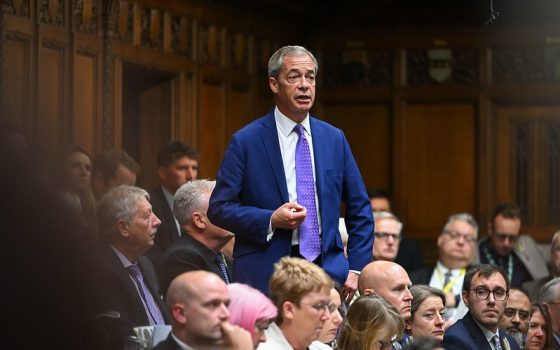Green New Deal: The UK edition
How can we step up to the challenge?
12 February 2019
Amid the drear of the Brexit endgame, as I trawl through my newsfeed my spirits have been lifted by the incredible goings-on over the pond.
A quick recap: the unstoppable new congresswoman Alexandria Ocasio-Cortez, along with Senator Ed Markey, and significant numbers of democrats including four presidential hopefuls, have put forward a resolution on a Green New Deal. The plan? To shift the US to zero-carbon through a far-reaching package of government support for investment and jobs, aiming for a transition that is socially just as well as environmentally responsible. It’s worth reading the plan itself– it’s short and quite mesmerising in its ambition.
But let’s take it for what it is: a bold, positive plan for action on climate change, from sitting US politicians. That, in itself, is remarkable.
It’s early days. The resolution is non-binding, would need to be followed by legislation, and is not yet supported by many senior Democrats. But let’s take it for what it is: a bold, positive plan for action on climate change, from sitting US politicians. That, in itself, is remarkable.
Critics of the Green New Deal split into two camps: those who say it’s not practical, and those who say it’s partisan. Nancy Pelosi, Democrat Speaker of the House of Representatives, dismissively branded the plans a Green Dream. Many have pointed to the eye-watering levels of spending required – Michael Liebrich brands it ‘fantasy economics’. It is certainly partisan, too, a creature of the younger, more progressive wing of the Democratic party, and won’t get a lot of love from the Republican establishment (though it is pretty popular with the electorate, even Republican voters).
Both criticisms are right, and yet they seem to me to miss the point entirely. The whole point of the Green New Deal is that it is partisan and ambitious. It sets out a radical, political vision for climate action. It puts climate in its rightful place – as the defining political issue of our time, an issue which can’t be solved by stealth, through technocratic consensus, but by open political debate. Not practical enough? It’s a damn sight more practical than dealing with three degrees of global temperature rise. Too partisan? Well, Republicans, show us your preferred approach to a zero-carbon transition, and then we’ll talk.
It puts climate in its rightful place – as the defining political issue of our time
And so back to the UK. If we weren’t too busy dissecting the backstop or betting on which member of cabinet will flounce out next, we could think properly about lessons of the Green New Deal for the UK. Here are a few.
First, those politicians who want radical action on climate change in the UK, and there are quite a few, should not be afraid to speak out and acknowledge climate change for what it is – an issue unparalleled in its significance, which demands a radical response. My research with Members of Parliament has shown that most are reluctant to do this – but perhaps the US experience will embolden a few in our own House.
Second, we shouldn’t continue to hide behind the consensus of our Climate Change Act. It’s brilliant, of course, that our carbon targets have the support of all major political parties. But we could do with a lot more debate and, yes, disagreement about how we meet those targets. I would love to see genuine proposals for a zero-carbon UK emerging from Labour and the Conservatives, big, bold ideas, laid on the table for voters to examine.
Third, the Green New Deal sets out a clear programme of transition, over decades. We, too, should be thinking through how we make that shift, through decisions over infrastructure, job creation and skills training, and programmes of investment. Perhaps the new Just Transition Commission in Scotland will show us how it can be done.
Fourth, we seriously need to think about who our equivalent of the Sunrise Movement is. They are young, radical, and politically engaged. Has our own environmental movement become too professionalised, too engaged in technical policy solutions, too consensual, maybe just too practical?
The UK has long been seen as a climate leader, and certainly our Climate Change Act, now ten years old, broke new ground. But the times are changing. With the Committee on Climate Change to report shortly on the implications of the IPCC’s pleas for more radical action, the UK government will soon have to decide what next. Can we shift our gaze away from Europe for long enough to glance across the Atlantic and realise that we, too, could benefit from some real climate politics?
Topics Climate change Energy Environment






